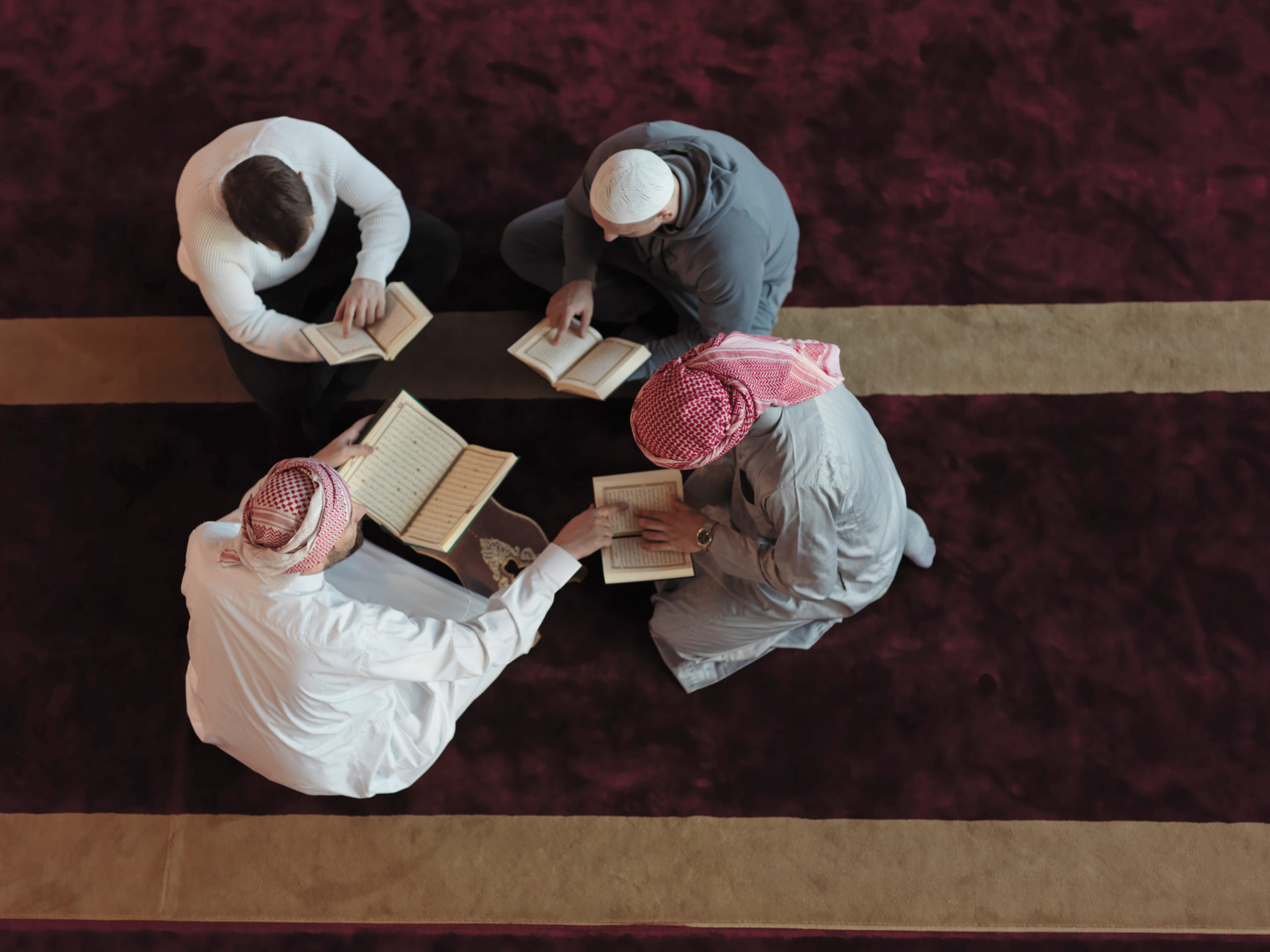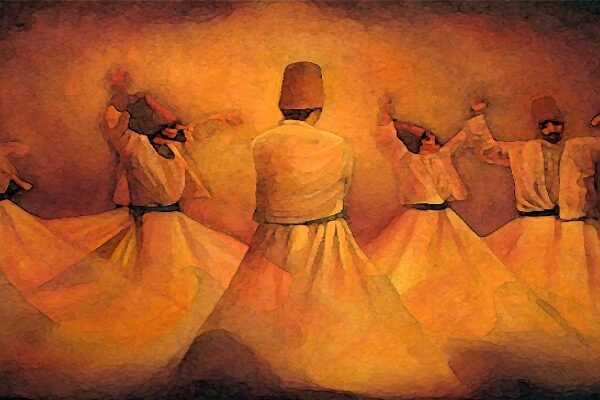Theoretical studies of God, of course, have their place, but ultimately, God is there to have a relationship with; He is an entity, an Ultimate Truth with which one seeks to resonate, harmonize and synchronize one’s own life and actions.
Theoretical studies of God, of course, have their place, but ultimately, God is there to have a relationship with; He is an entity, an Ultimate Truth with which one seeks to resonate, harmonize and synchronize one’s own life and actions.
The song is in the vernacular language, it is speaking to the people at the personal level, divorced from academic jargon. Theoretical studies of God, of course, have their place, but ultimately, God is there to have a relationship with; He is an Ultimate Truth with which one seeks to resonate, harmonize and synchronize one’s own life and actions…The arts – music, poetry, architecture, painting – have been essential in making God a lived experience across cultures. In fact, perhaps that is a good definition of spirituality: “to live theology.”
Singing your way to God?
As I begin to write this, the sound of a modern Pakistani worship song resonates in the background. It is predominantly in Urdu, with a healthy sprinkling of Arabic, and the odd high register phrase that wouldn’t go amiss in a Persian poem. The producers, however, have kindly added English subtitles for the less linguistically blessed among us. Hence, any attempts to render the song into vaguely poetic English that follow are my own, but often heavily supported by the provided subtitles.
“You are the Lord of the one who was chosen! You are the Lord of the one who was pleased!” Allusions are made to the personalities of Muhammad and his cousin Ali, the spiritual inheritor of the Prophet in Sufi-Sunni tradition, as well as his absolute successor in Shi’i Islam. “The Ark of Noah, I am able to see – I am drowning in repentance’s sea.” A universal image of salvation is evoked, but how do we get there? Keep listening and the song will take you on that journey. “You are that very light, blind to which I became; Through witting and unwitting sins, nothing did I gain.”
The video is of a live studio performance featuring a singer well-known for his pop music and another who is trained in the subcontinent’s classical music tradition. The set includes an acoustic guitar, cellos, violins, and a drummer who becomes less and less restrained as the piece unfolds. There is also a traditional subcontinental flute called a Bansuri and a two-hand drum known as Dholak. A supporting cohort of Sufi Qawwali singers are seated on the ground equipped with their masterful voices whilst a magnificent beard and two female singers come in as backing vocalists. Meanwhile, an electric guitarist dons oversized shades in poor indoor lighting. Some are dressed in traditional Pakistani clothes, some more elaborately embroidered than others, whilst others wear jeans and t-shirts. Welcome to Coke Studio Pakistan, a fusion of old and new, catering for contemporary spirituality in the age of the internet.
Did I mention the keyboardist clad in a leather jacket with an intractably deep voice who proclaims “Allahu Akbar” at regular intervals? God is the Greatest. Or, if we want to be more precise, “God is greater than description.” Or, in the words of a supplication by Zayn al-Abidin (as), great-grandson of the Prophet Muhammad (saw), the reality of the divine is far beyond what descriptions can describe. Perhaps that is why music in its various forms has always manifested itself in virtually every devotional tradition: music is something that possesses the power to rouse the dormant and transcendent which lies within all of us, allowing us to experience something of that which we can’t fully grasp.
The mystics have held that the Supreme Reality cannot be comprehended through the intellect, but it can begin to be perceived through the heart – although still ever escaping the constraints of verbalisation. For example, God’s unfathomable reality can be evoked through paradoxical language which, while confounding the intellect, pierces the spiritual heart and gives the human being glimpses of His essence, such as the saying of Imam Ali (as): “God is with everything but not through conjunction [not as a second thing joined to it], and He is other than everything but not through separation” (Reza Shah-Kazemi [Video], 2020).
Echoing Biblical phraseology, the Quran too acknowledges God’s enigmatic attributes: “He is the First and the Last, the Manifest and the Hidden,” the latter half sometimes translated as “The Inward and the Outward” ” (Al-Hadid, 57:3 [Alternative Translations]). Beyond paradoxes, I have found that music and melodious recitations are also something that can awaken in the human being this ability to, as Zayn al-Abidin’s says in one of his whispered prayers, “taste the sweetness” of divine love and experience the “intimacy of proximity” with God.
During the month of Ramadan (April-May 2020), I received a message on my tumblr poetry blog from someone who was struggling with their personal faith. One of the things they said to me was, “I’ve even resolved never to listen to music again… but all my life, music and art have been something really really dear to me.” Of course, this line could have been written by millions of Muslims around the world; the impulse to suddenly drop music to rectify one’s faith comes off the back of an Islamic culture of knowledge that has historically been cautious of music and its permissibility – even suspicious of its potential perniciousness. I advised this person, first, with caution in regard to going cold turkey and I also shared the following:
“Music… has played a part in my life. In fact, devotional music – in Urdu and English – laid the road for me to eventually coming to find enjoyment in listening [to] and reciting the Quran and Duas. I wouldn’t throw music out the boat completely, not all of it is forbidden, and a good deal of it can benefit you and raise your spirits and help fill your soul with the love of God. Especially if you don’t understand Arabic, or even if you do, listening to ‘religious music’ [in your own language] is often the first step I find people take and it’s one that benefited me no doubt.”
In fact, I mentioned later in my reply that it was remarkable that they had asked me about music that very day because, “I’ve felt a bit emotionally distant from God [recently] and things haven’t been clicking, I haven’t been connecting… Yesterday between iftar and suhoor I ended up putting on an Urdu Song about God… the song really struck me and I found that the gates of my heart just flung open.” In fact, I found myself in quite a state that night, with tears streaming down my face. It was indeed the very same song that I have been listening to while writing this article.
Arts grounded in theology
“The Day of Gathering, I cannot begin to fathom,” the song continues, “I have not brought the deeds to earn your pardon…! My plea is only, that you draw me to you close…! Have mercy, have grace, the beggar is standing at your door…!” The song is conversing with God while deeply aware of and thoroughly grounded in profound theological ideas present in formal scholarship – ideas which I won’t expand on for sake of brevity, but equally ideas that don’t need to be elaborated here.
This song is in the vernacular language, it is speaking to the people at the personal level, divorced from academic jargon. Theoretical studies of God, of course, have their place, but ultimately, God is there to have a relationship with; He is an entity, an Ultimate Truth with which one seeks to resonate, harmonize and synchronize one’s own life and actions (puns all intended). So, if music puts you into tune with the divine reality, if it brings you back to God, then there is surely good to be found in it. “When my plans fell apart, this I came to know: In Your Kingdom, [my Lord,] only Your word goes.” My favourite line.
There has been much discussion lately on the erasure of Rumi’s Islamic identity by Western translators (The New Yorker, 2017; Persian Poetics Twitter Thread, 2020), but it should be remembered that his celebrated Masnavi was dubbed “The Quran in Persian,” not because it was a translation, but because Rumi was, at heart, a Muslim scholar. Rumi was deeply grounded in Islam’s theological and jurisprudential traditions before he was a vague and badly translated oriental mystic; his knowledge of the Quran and the Islamic Sciences formed and informed the basis of his spirituality and, ultimately, those ideas became inextricably interlaced with the poetry that the masses read.
The arts – music, poetry, architecture, painting – have been essential in making God a lived experience across cultures (Ogunnaike, The Silent Theology of Islamic Art, 2017; Scruton, Music and Morality). In fact, perhaps that is a good definition of spirituality: “to live theology.”
Islamic music has been part of Muslim cultures across the world, manifesting under different names and forms such as nasheed, hamd, and naat. Shi’i cultures, furthermore, have also developed their own unique forms of poetic recitations that both mourn and celebrate the family of the Prophet. I may be crucified for labelling these “music,” so I will avoid doing so, but the similarities to the foreign ear are clear.
Iranian scholar Alireza Panahian and his team seem to have recognised the pre-eminence of music in our era and, consequently, his English language social media has promoted a Western-style of music that recounts the story of Karbala “in the hope that it will be appealing to the youth in Europe, america, and distributed to them with your help. but, it may not be to the taste of all Muslims.” It’s very different to any noha that I’ve ever heard, but it still plucks at the heartstrings. Moreover, unlike a lot of English language nohas, these songs don’t feel forced as they don’t try to imitate Arabic, Urdu or Persian structures and rhythms. They are in many ways like normal Western music in the way they sound – even if the topic matters are nothing alike.
English is its own language, vastly different from languages historically spoken by Muslims, hence English poetry should be composed and English nohas written by learning from the English poetic tradition. I want to say the same about musical tradition, but there is obvious hesitance to learn from it. Music, however, is a global language and, ultimately, an incomparably potent tool that Muslims must learn to utilise effectively within the confines of Islamic law.
Acknowledging dangers and looking to the future
The reluctance to delve into musical tradition, of course, stems from both perceived and real dangers of music: it has an incredible potential that can and has been misused.
“In a manifesto released to coincide with the [2011] atrocities, Anders Breivik [the Oslo bomber] explains the crucial role that music played in developing and reinforcing his extreme right-wing militancy. As well as listing songs which inspired him, he emphasizes the importance of music as an aid to self-indoctrination and motivational control” (James Garratt, Music and Politics: A Critical Introduction, 2018).
And of course, Islamic and other religious traditions aren’t wary of music simply because of one mad or malevolent maniac in Norway, rather music can be (mis)used to arouse and channel the most base and bestial aspects of the human being – the qualities which religious traditions around the world encourage their devotees to transcend (Should Christians listen to Secular Music [Video], 2018).
Daniel Levitin cites a study that showed that the intense emotions evoked in subjects from listening to music (“thrills and chills”) affected the same areas of the brains as gambling and drug usage and activated “brain regions thought to be involved in reward, motivation, and arousal” (Your Brain on Music, 2009). Music is not to be trifled with, and this is no modern realisation: we have known about music’s power for millennia, but only now we are beginning to understand the psychological effects and neurochemical changes that music produces. So, when a Muslim scholar says music, be it lyrical or instrumental, is effectively “a drug,” they are not simply being a conservative killjoy. They are standing on solid ground. Music has a profound effect on us; precaution is not unwise.
Given I have spent most of this article discussing the benefits of music, it should be clear that I am not of the camp that totally rejects it. But on the other hand, I make it clear that I am very meticulous (and possibly excessively selective) about the sort of music to which I do allow myself to listen. Moreover, as the years have gone by and as I have learned Arabic and developed my relationship with the Quran, devotional “halal music” has come to feature less and less in my life.
Nonetheless, Shi’i Muslim scholars have issued rulings that permit the sort of music that does not distract from the remembrance of God (Ayatullah Khamenei) and so long as it is not music that is suitable for “gatherings of amusement and entertainment” (Ayatullah Sistani). The application of these rules however, and judging what is and isn’t suitable for entertainment, and what does and doesn’t distract from God, is left to the individual believer (for non-Shi’i stances see: Rashid, n.d.. for a short summary; Nasr, 1976 for a short academic overview that incorporates Sufi understandings as well as purely legal opinions; Dar al-Ifta al Misriyya, n.d. for an Egyptian advisory council’s fatwa and discussion vis-à-vis rulings on music; and, of course, IslamQA, 2000 for a more conservative opinion).
As a result, there is an extent of cultural and individual relativity that can be invoked; detractors may call it a grey area and some Muslims may go the extra mile and avoid it all out of voluntary supplementary precaution. Ultimately, however, it is down to the sincerity of the individual believer who knows best whether or not a particular piece of music is distracting them from God or helping them draw closer to Him.
The late Lebanese Ayatullah Fadlallah, whose English language website contains a more extended dialogue on music, humbly responded to a question about the permissibility of classical music by saying, “I do not have the required knowledge to distinguish the different genres of music. However, it is generally acknowledged that Classical music is the music that inspires sentimentality rather than lewdness and rapture. If so, then Classical music is permissible” (Bayynat, 2012). I consider it admirable that such a high-ranking scholar admits shortcoming in his personal knowledge of music, but it does point to the potential for developing more specialised understandings within the scholarly class, such as Morteza Motahari’s suggestion for specialisation of different scholars in different disciplines and taqlid (emulation) of a group rather than just one individual (Afshar, Iran: A Revolution in Turmoil, 1985).
Therefore, I believe a great deal more research on music is needed in the fields of psychology, neurology, and sociology as starting points and then combining this learning with formal Islamic Jurisprudence. My own undergraduate dissertation studied devotional music as a tool of political resistance, but to diversify and deepen our collective knowledge it is necessary to study music from a scientific perspective as well. We need to learn a lot more about short-term and long-term effects of all different types of music on the psyche. If that information already exists, it needs to be better publicly circulated and widely understood because our world is drowned in music; it is saturated with sounds that are, effectively, drugs. They affect our moods, they affect our psychological and spiritual states, and they have just been given open welcome and unchecked rein to infiltrate and permeate our every public and private moment.
When non-Muslims hear Quran or Dua being melodiously recited for the first time, I have often heard them refer to it as “singing.” Out of respect for their sanctity of course, Muslims usually referred to these as “recitations” in English; correspondingly, terms that differentiate them from potentially irreverent and impious music are utilised in Arabic and other languages. But simply knowing that the Quran is melodiously recited, that religions across time and space have incorporated music into their worship and devotion, that you can feel different by listening to music (is that not why many of us always have our earphones plugged in?) – is that not enough reason to be at least somewhat wary and seek to learn more about music just as we do about every type of food and drink that we consume?
The Quran states: “Then let the human being look to his food” (‘Abasa, 80:24).
In what appears to be a subtle reference to this verse, Hasan (as), the eldest grandson of Muhammad (saw), is reported to have said: “I am amazed at the people who are meticulous about what they feed their bodies, how they do not take care about what they feed their minds: They protect their stomachs from harmful food, but feed their minds that which brings them to destruction” (Safinatul Bihar).
An earlier version of this article appeared on TruThink, a student interfaith blog and radio show.





